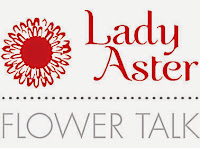Everybody has their own "Now it's spring" moment. For some, it's when the snow melts, for others, when delicate blossoms tip the ends of fruit trees, and for us flower farmers, it's when Viburnum arrives to our Willow Creek Farm. Welcome to Part 2 of our Spring Flower Series, where we welcome Viburnum!
The short n sweet nature of Viburnum's growing season makes these spring branches extra special --we start picking at the end of March (when their heads are nice and full) and we are usually done by the end of April.
We plant viburnum in both open fields and covered hoop houses--the hoop houses hold in heat and contribute to a faster growing rate. We can stagger our picking schedule, starting with early-season hoop houses and ending with their open field-grown counterparts, and this little trick allows us to extend the short viburnum growing season by a few more weeks.
Viburnum is also known for its color change during the season. First, its mass of tiny blossoms bloom in a vivid green color (known as early-season Viburnum), in a hue that is the perfect representation of Pantone's 2017 Color of the Year, Greenery. Then, as our crop matures and the open-fields get some time in the sunshine, our early-season green viburnum develops into a brilliant, ivory white. Their "late-season" white color, as well as their spherical, puffy shapes, is why you may hear them referred to as Snowballs.
We pick while the crop is still mostly green, much like we do with our iris, tulips, and lilies. This guarantees a longer vase life, plus you can watch the blooms color up beautifully.
Regardless of whether you opt for early-season green or late-season white, this botanical and its long, wooden stems makes it the perfect complement with quintessential spring flowers such as tulips, iris, and hyacinth.
In fact, tulips and Viburnum are such a powerful, popular spring combination, we offer enhanced, 8-stem bunches of Viburnum and French Tulips. These combos are big sellers, so be sure to contact your sales rep soon to get your hands on some of these seasonal favorites. And don't wait too long...Spring and Viburnum will be gone in the blink of an eye!
The short n sweet nature of Viburnum's growing season makes these spring branches extra special --we start picking at the end of March (when their heads are nice and full) and we are usually done by the end of April.
Growing Viburnum
We grow Viburnum at our Willow Creek farm, located 45 minutes inland from Arcata, situated in a mountain canyon with a superb micro-climate. This "hot spot" provides the perfect conditions to produce these fantastic spring blooms.We plant viburnum in both open fields and covered hoop houses--the hoop houses hold in heat and contribute to a faster growing rate. We can stagger our picking schedule, starting with early-season hoop houses and ending with their open field-grown counterparts, and this little trick allows us to extend the short viburnum growing season by a few more weeks.
Viburnum is also known for its color change during the season. First, its mass of tiny blossoms bloom in a vivid green color (known as early-season Viburnum), in a hue that is the perfect representation of Pantone's 2017 Color of the Year, Greenery. Then, as our crop matures and the open-fields get some time in the sunshine, our early-season green viburnum develops into a brilliant, ivory white. Their "late-season" white color, as well as their spherical, puffy shapes, is why you may hear them referred to as Snowballs.
 |
| L-R: Sun Valley Sleeve, Early Season Viburnum, and Late Season Viburnum |
We pick while the crop is still mostly green, much like we do with our iris, tulips, and lilies. This guarantees a longer vase life, plus you can watch the blooms color up beautifully.
 |
| American Grown Viburnum |
Viburnum Arrangements
When displayed by themselves, these gorgeous specialty branches provide a great focal pop of color, and have a natural, rustic, garden-fresh aesthetic.Regardless of whether you opt for early-season green or late-season white, this botanical and its long, wooden stems makes it the perfect complement with quintessential spring flowers such as tulips, iris, and hyacinth.
 |
| Tulips and Viburnum |
 |
| Viburnum and French Tulips |
Spring Flower Series: Viburnum
4/
5
Oleh
Unknown








